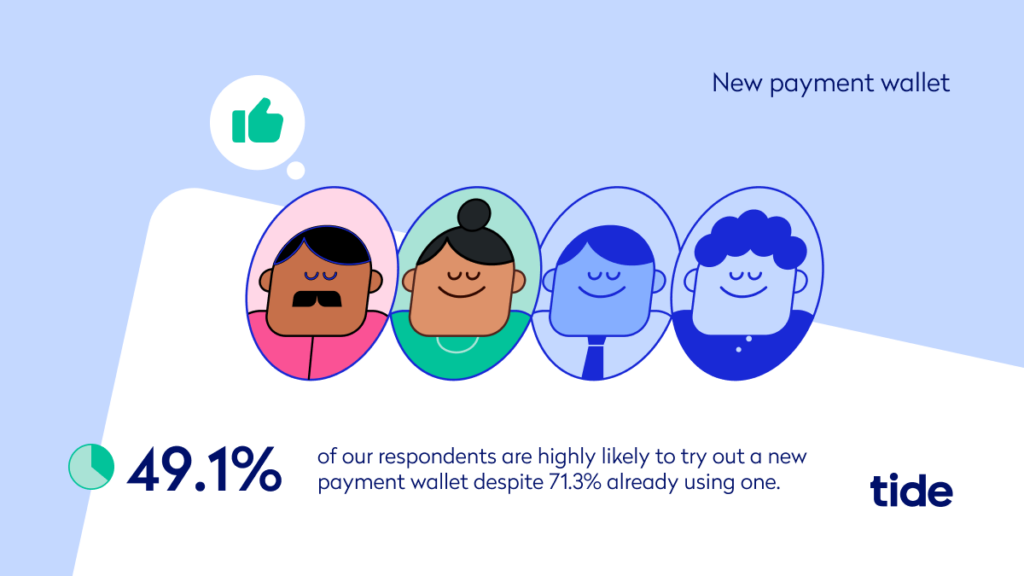
SMEs and Freelancers in India Deserve More

Financial management has always been one of the biggest challenges for SMEs and freelancers since the buck literally stops at them. Tide is on a mission to help small business owners and freelancers save time and money and do what they love. We surveyed 275 small business owners and freelancers for what pains them and to understand the solutions they are seeking. Let’s discuss the insights. de
The biggest challenges
55% of our respondents are in the age group of 18-34 which implies that fairly young SMEs and freelancers are actively seeking solutions for better financial management. This age group might be starting their own business or taking over their family business. Core admin tasks remain their biggest hurdles and drain a major chunk of the productive hours of these SME owners and freelancers, hampering their ability to do just what they love.
Look at these figures –
- 61.7% do not have a dedicated finance department
- 34.9% struggle with expense management and
- 34.2% find it difficult to manage digital bookkeeping and invoicing

The bigger picture
Most SMEs and freelancers are unorganised, with no GST number or finance department. Not having a clear record of business expenses leads to overspending and topples the budget. Meanwhile, traditional financial institutions continue to upset them with hidden charges, inadequate customer support, limited working hours, and difficulty tracking transactions. These situations combine and often lead to consequences such as lack of funds when required.
Access to credit is the lifeline for SMEs and freelancers. It helps them obtain the capital they need to expand, cover day-to-day expenses, hire additional staff, and get cash on hand to cover the cost of doing business. Collateral requirements and low credit scores are the major problems faced while trying to avail of credit. Resultantly, 64.7% of our respondents had never availed of a business loan.

SMEs in India deserve more
Internet penetration is growing in tier 2 and tier 3 cities, and most SMEs use digital platforms to promote their business. WhatsApp (41.1%), Facebook (38.2%), and Instagram (36%) are the key engagement channels. A study by KPMG and Google revealed that out of 125 million English speakers in India, only 0.3% use it as their first language. Most SMEs prefer a financial product in their regional language. Further, our survey reflected that only 4 out of 10 states have Hindi-speaking SMEs, emphasising the importance of vernacular communication. Here are the major states that our respondents came from –
- Rajasthan (10%)
- Maharashtra (10%)
- Uttar Pradesh (9.0%)
- Bihar (9.0%)
- Gujarat (8.5%)
- Delhi (7.6%)
- West Bengal (7.1%)
- Telangana (7.1%)
- Karnataka (5.7%)
- Tamil Nadu (3.8%)
- Others (22.3%)
A lot remains to be done. 49.1% of our respondents are highly likely to try out a new payment wallet despite 71.3% already using one. Now, what’s the best way to bring them into the fold? High-quality relatable content is likely to garner traction. They need a reliable partner to support them in their journey, and that’s what the focus should be.

Tide as a solution
After helping 475000+ businesses in the UK, Tide is now in India to help SMEs and freelancers discover the smarter way to make business purchases. Unlike the traditional financial services, Tide lets them open a business account in minutes with no queuing or appointments. Active member support and real-time notifications are some of the features of the Tide Business Account, along with no annual or subscription charges and absolute security.
Making business transactions and tracking expenses is effortless with Tide. The Tide Expense Card, offered in partnership with Transcorp (an RBI regulated PPI issuer) and powered by RuPay, offers incredible flexibility and can be used to make payments at all RuPay-accepting merchants at zero charges. In addition to vast acceptability, it comes with a cumulative spending limit of INR 3,00,000 per day or month. It gives the power of financial management back into the hands of SMEs and freelancers, and the upcoming company expense cards will further ensure that they stay in the loop with seamless monitoring of employee expenditure.
Here’s a brief list of what the future beholds –
- GST-compliant invoice generator
- Receipt importer for expense management
- Sync with accountancy software
- Auto-categorization
- Payroll management
- Credit services
- Auto-reminders
- Company expense cards
With these upcoming features, we want to ease the load of core admin tasks on SMEs and freelancers and further utilise these insights to devise impactful solutions. SMEs will stay if you create real value for them. We aim to fuel small businesses and freelancers by empowering them to embrace the new, get off the ground and reach the zenith.


